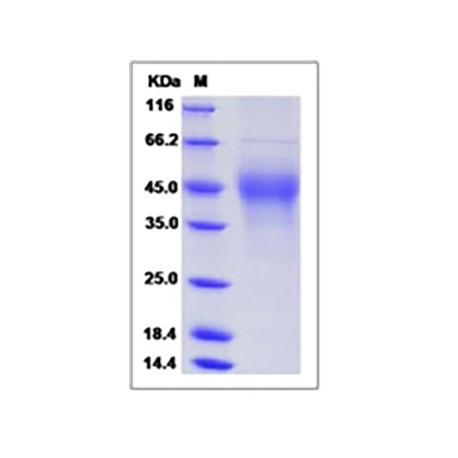No products
Product successfully added to your shopping cart
There are 0 items in your cart. There is 1 item in your cart.
Proteins and Enzymes
- Protein Control Ligand
- Pathway Inhibitors
- Enzyme Inhibitors
- Kinase Inhibitors
- Protease
- Synthase
- p18
- p38
- p53
- p70
- p90
- Peptidase
- Carboxyl and Decarboxylases
- Ceramide Turnover Enzymes
- Chromatin Modifying Enzymes
- Cyclic Nucleotide Turnover Enzymes
- Glycerophospholipid Turnover Enzymes
- Hydroxylases
- Ubiquitin-Activating Enzyme
- Adenosine Deaminase
- Clathrin
- Nuclease
- p68
- ACE
- COX
- DHFR
- Neprilysin
- NF-κB
- RAF
- RAS
- Reductase
- ROR
- Topoisomerase
- Transferase
- Protein Inhibitors
- Transporter Inhibitors
- Cell Inhibition
- Synthase
- Receptor Tyrosine Phosphatases (RTP)
- AChE
- Peptidase
- Autophagy
- Toll-Like Receptor (TLR)
- Enzyme Inhibitors
- Function Modulators
- Activators
- G Protein-Coupled Receptor Ligands
- 5HT Receptors
- Adrenoceptor
- Angiotensin Receptor
- Cannabinoid Receptors
- CCK Receptors
- DA Receptors
- EAA Receptors
- Ghrelin Receptors
- GABA Receptors
- Histamine Receptors
- Leukotriene Receptors
- Metabotropic Glutamate Receptors
- Motilin Receptors
- Muscarinic Receptor
- Neuropeptide Receptors
- Opioid Receptors
- Orexin Receptors
- Orphan Receptors
- Prostanoid Receptors
- Proteinase-Activated Receptors
- Purinergic Receptors
- Ryanodine receptor
- Sigma Receptors
- Thrombin Receptor
- Vaniloid Receptor
- VIP and PACAP Receptors
- Neurotensin Receptors
- Urotensin Receptor
- Imidazoline receptor
- SMO Receptors
- Apelin Receptor
- β-arrestin/β2-adaptin
- KDM4
- Glucocorticoid Receptor
- Laminin Receptor
- AHR
- Amylin Receptor
- Bombesin Receptor
- Bradykinin Receptor
- CFTR
- CGRP Receptor
- CRFR
- Endothelin Receptor
- Ephrin Receptor
- Farnesoid X receptor (FXR)
- Glucagon Receptor
- Nuclear Receptor Ligands
- GDNF Receptors
- TNF Receptors
- Transcription Factors
- Chemokines
- Cytokine Receptors
- Biomarkers and Buffer Solutions
- Molecular Probes
- Stem Cell Research
- Alzheimer's Disease
- Apoptosis
- Cancer Research
- Epigenetics
- Metabolites
- PET/SPECT Imaging Precursors
- Customized Screening Library
- Ultra Pure Pharmacological Standard
- Tissue Microarray (TMA)
- Proteins and Antibodies
- Primary Cells
- ELISA KIT
- Natural Products
- Lab Equipments
- Humanized Mice for PDX Platform
- Rare Chemicals
- Custom Synthesis
- Antibacterial
- Antifungal
- Antioxidant
- Antiviral
- Molecular Glues
- PROTAC Linker
- SARS-CoV
Mouse M-CSF / CSF-1 Protein
51112-MNAH
Activity: (1) Immobilized mouse CSF1 at 10 μg/ml (100 μl/well) can bind mouse CSF1R-Fch (Cat:50059-M03H), The EC50 of mouse CSF1R-Fch (Cat:50059-M03H) is 0.04-0.1 μg/ml. (2) Measured in a cell proliferation assay using M‑NFS‑60 mouse myelogenous leukemia lymphoblast cells. The ED50 for this effect is typically 1.5-7.5 ng/ml.
Please ask for quote for unit smaller than 1 mg
Molarity Calculation Cart®
HOW TO ORDER
Data sheet
| Molecular Weight | The recombinant mouse CSF1 comprises 230 amino acids and has a predicted molecular mass of 26 kDa. The apparent molecular mass of the protein is approximately 45 kDa in SDS-PAGE under reducing conditions due to glycosylation. |
| Storage Condition | Samples are stable for up to twelve months from date of receipt at -70℃. Store it under sterile conditions at -20℃ to -80℃. It is recommended that the protein be aliquoted for optimal storage. Avoid repeated freeze-thaw cycles. |
| Purity | 95% as determined by SDS-PAGE |
More info
Protein Construction: A DNA sequence encoding the mouse CSF1 (P07141-1) (Met1-Glu262) was expressed.
Formulation: Lyophilized from sterile PBS, pH 7.4.1. Normally 5% - 8% trehalose, mannitol and 0.01% Tween80 are added as protectants before lyophilization. Specific concentrations are included in the hardcopy of COA.2. Please contact us for any concerns or special requirements.Please refer to the specific buffer information in the hard copy of CoA.
Reconstitution: A hardcopy of COA with reconstitution instruction is sent along with the products. Please refer to it for detailed information.
M-CSF Background Information: Macrophage colony-stimulating factor 1, also known as CSF-1, M-CSF, Lanimostim and CSF1, is a single-pass membrane protein which is disulfide-linked as a homodimer or heterodimer. Granulocyte / macrophage colony-stimulating factors are cytokines that act in hematopoiesis by controlling the production, differentiation, and function of 2 related white cell populations of the blood, the granulocytes and the monocytes-macrophages. M-CSF/CSF-1 is known to facilitate monocyte survival, monocyte-to-macrophage conversion, and macrophage proliferation. M-CSF/CSF-1 is a secreted cytokine which influences hemopoietic stem cells to differentiate into macrophages or other related cell types. It binds to the Colony stimulating factor 1 receptor. M-CSF/CSF-1 may also be involved in development of the placenta. The active form of M-CSF/CSF-1 is found extracellularly as a disulfide-linked homodimer, and is thought to be produced by proteolytic cleavage of membrane-bound precursors. M-CSF/CSF-1 induces cells of the monocyte/macrophage lineage. It also plays a role in immunological defenses, bone metabolism, lipoproteins clearance, fertility and pregnancy. Upregulation of M-CSF/CSF-1 in the infarcted myocardium may have an active role in healing not only through its effects on cells of monocyte/macrophage lineage, but also by regulating endothelial cell chemokine expression.
References:
- Pandit J. et al.,1992, Science. 258: 1358-62.
- Tokai M. et al.,2000, J Bacteriol. 182 (10): 2865-8.
- Fan X. et al.,2001, Am J Physiol Endocrinol Metab. 280 (1): E103-11.
- Frangogiannis NG. et al.,2003, Am J Physiol Heart Circ Physiol. 285 (2): H483-92.
- Cupp JS. et al.,2007, Am J Surg Pathol. 31 (6): 970-6.



